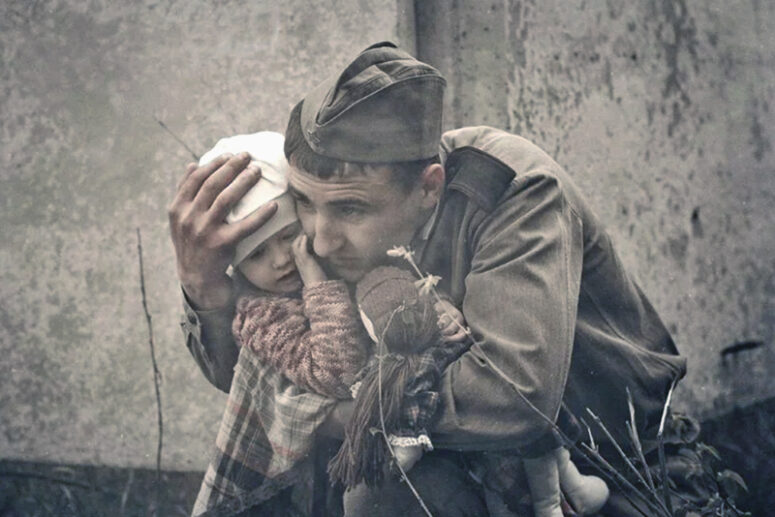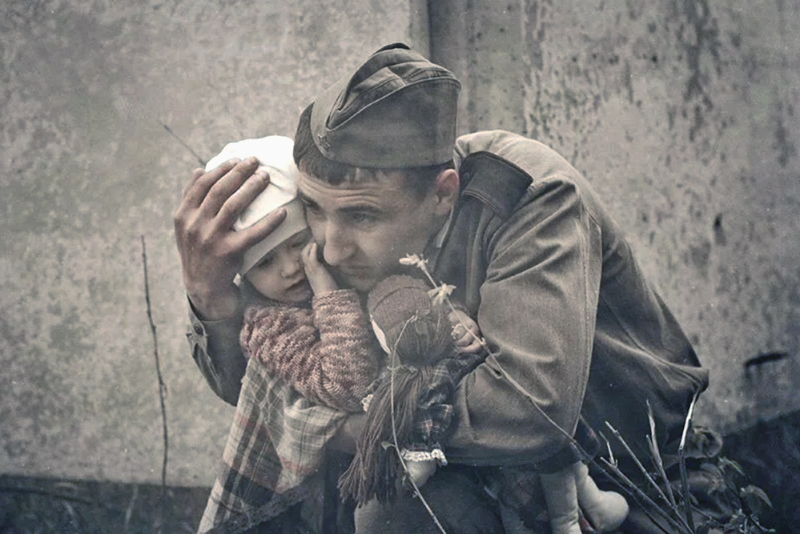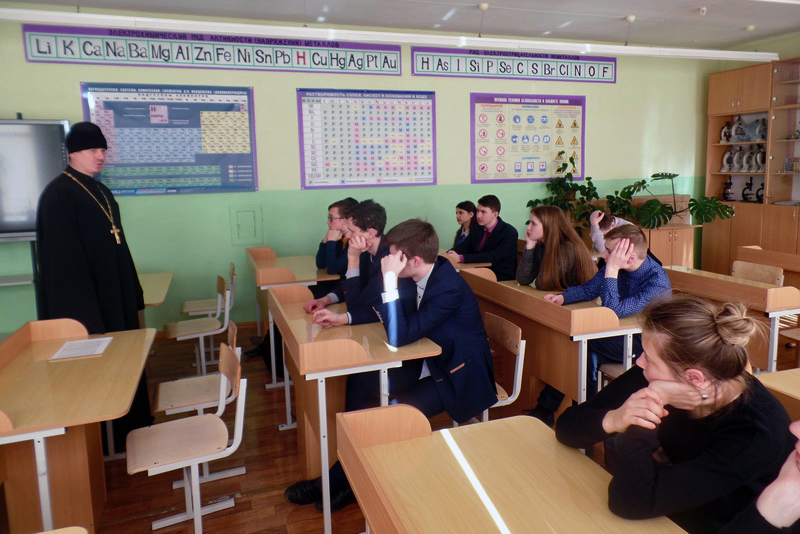
It is not in our power to stop a war. Yet we do have the power to remain human, and most importantly, Christians – even in times of war. Lent is a special time for every Christian when we dedicate ourselves to prayer, penitence and contemplation. But this Lenten season was different for Christians in Ukraine. It was both tragic and symbolic because the horrific sounds of war, shelling and explosions interrupted the blessed sounds of Lenten prayers and church bells.

War. Our grandmothers and grandfathers always said this word with fear and trepidation. Now it has become a horrible reality for all Ukrainians. At the sounds of the first bombings and explosions in the early hours of 24 February, many refused to believe what was happening. They thought they were having a bad dream.
And yet the incessant howling of the air-raid sirens and the terrifying images from the battlefields raise many questions in our hearts and minds. The first and most difficult among them is why. Yet, if we gave ourselves the trouble to look deep into the roots of any armed conflict, we would find that all of them are grounded in human sin.
Secular experts will name scores of different reasons for wars – historical, political, strategic, military, economic, psychological and many others. But for a Christian, the fundamental reason is spiritual. Human wrath and hate, the destructive passions of individuals and societies escalate to enormous proportions and reach the point of explosion. A war breaks out, and we all bear our part of the blame for its horrors. All who have stocked up hate and hostility towards their neighbours or colleagues, their families and kin; all who did not ask for forgiveness or forgive; all who abused, swore and wished evil for others – all have contributed to it. By allowing us this sorrow, the Lord shows us our interdependence. He lets us experience how the evil that we cause somebody else comes back to all of us. “But why me?” we might exclaim. In our situation, that will be a useless question. Rather, we must look for the reasons in our hearts and souls; if we did, we would be shocked to see how much hate, malice and dishonesty we have allowed to pile up within us.
Worse still, this otherworldly evil that we have let into our lives is drawing in our innocent children. They are also suffering and dying in the inferno of this war. By harbouring evil in their hearts and allowing it to manifest in war, adults become complicit in it. They liken themselves to King Herod, who ordered the massacre of innocent infants in Bethlehem for the satisfaction of his passions. Only by giving these questions our best thought do we begin to make sense of a reality that lies beyond human understanding.
It is not God, but us humans, who, by giving in to the sweet-sounding temptations of our enemy, become the source of the evil. But even in the darkness of this evil, God still shows His providence for us. His providence for every person and the world works even in the demonic cycle of the war. We may find this thought difficult to understand or accept, but what seems impossible to the human mind, possessed by passions, becomes visible with the eyes of our faith.
War is infinitely evil, and to those who experience war, it is not just a global cataclysm, but also a personal crisis, and a crisis of faith.
One may become embittered and hate the world, or stand up to pray for it.
The crisis of the faith can bring forth our deep-lying evil, our most negative and frightful impulses and inclinations that we normally hide, even from ourselves. On the other hand, a crisis gives us the chance to show the best and brightest aspects of our souls. In other words, a crisis is the moment of choice, when our character and nature are revealed in the circumstances over which we have no control. We may choose to fall into despair or depression, or look for ways to benefit ourselves, or we may pull ourselves together and go out to help others who are in difficulty. We may choose to shed our anger and evil onto others or raise the spirits of our friends and family with a reassuring message, a phone call or a well-meaning smile.
We have no control over crises. Yet we do have the power to remain human, and more importantly, Christians even in the worst moments. Emerging from a crisis, with God’s help, will broaden our horizons and become more than we were before.
In our days, military operations and armed conflicts are different from the ones we read about in books. It goes on in large part in the media, where it claims many of its casualties. War attacks the foundations of logical thinking, normal patterns of behaviour and perception. It challenges our ability to understand and make sense of what is happening. The times of crises increase the appeal of simple solutions and basic explanations; they tempt us to join some larger group to which we like to ascribe the power to bring ruin to our enemy.
But Christians should treat information with caution, especially in these difficult times. The time spent in prayer is always more useful than sitting in front of the television or looking into the screen of a smartphone.
At these critical moments, we are tempted to trust information and propaganda, hearsay gossip or the opinion of a homegrown expert. But Christians should be aware that information during wartime can be worse than useless; it can be destructive and harmful to our salvation by igniting in us the bouts of inner rage, anger or despair. These are the exact passions that fuel the energy of war.
To build peace, we must acquire peace in our hearts, which we cannot do unless we learn to be selective with the information and not to let it interfere with our prayer life. We cannot let the world’s destructive influences interfere with the world of Jesus within us.
We must learn to live in the here and now. We must continue our journey to salvation with full trust in the One who promised that not a hair would fall from our head without His will.
But what should a Christian do in the middle of an ongoing war, amid the panic and despair that surrounds him? There is only one answer: live.
Let us be honest: we often look death in the face during wartime. But let us also ask ourselves, are our peacetime days free from risk? Who can honestly say that they are safe; that some unexpected development would not happen and derail their life plans?
Our lives are always in God’s hands in every circumstance. We know it particularly well in times of war. So let us say from our hearts this prayer that seems so very appropriate for the moment: “Let us commend ourselves, and all for whom we pray, to the mercy and protection of God.”
Translated by The Catalogue of Good Deeds
Source: https://spzh.news/ru/chelovek-i-cerkovy/87295-hristianstvo-vo-vremya-vojennyh-dejstvij





